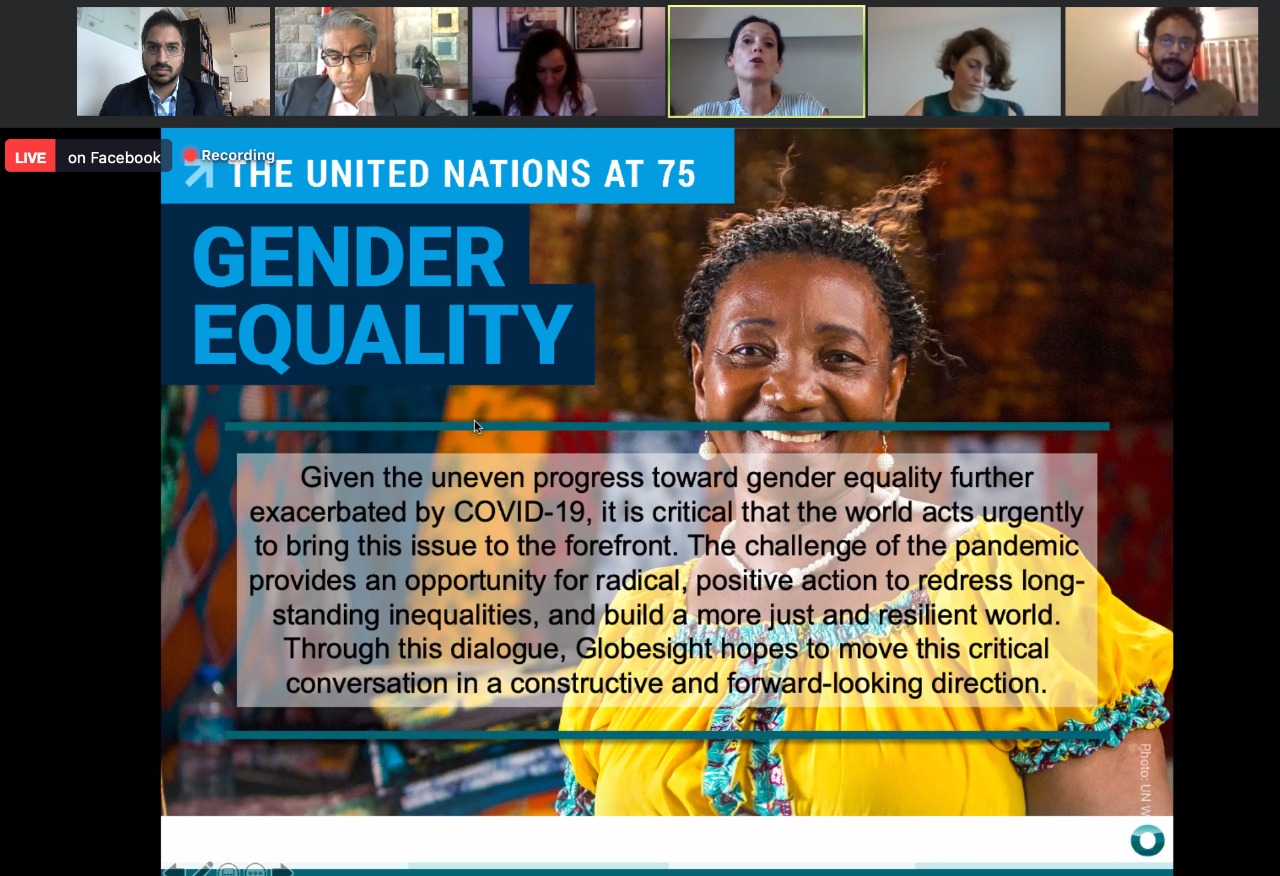In January 2020, the start of the United Nation’s 75th anniversary, Secretary-General António Guterres launched the world’s biggest conversation on building a better future for all. Guided by the vision of building greater solidarity around the world and the articulation of #TheWorldWeWant, the UN’s goal was to spark conversations, the UN75 dialogues, in diverse settings globally. From classrooms to boardrooms, parliaments to village halls, and ultimately on computer’s and mobile screens with the advent of COVID-19, global citizens exchanged their ideas on priorities for the future, obstacles to achieving them, and the role of international cooperation in making progress. As of late September, over a million people from all countries and all walks of life had already participated. Each dialogue presented a unique opportunity to encourage local action and build greater trust between groups and sectors. In a time of great disruption and uncertainty, as well as waning international cooperation, the UN sought to uncover shared priorities and outlooks for getting through the still-unfolding health crisis, and subsequent social and economic crises, together.
In line with the UN75 vision, Globesight hosted a virtual dialogue, “Championing Gender Equality amidst a Pandemic: Catalyzing Innovative Solutions to Narrow a Widening Gap,” bringing together diverse international stakeholders to explore how women have been particularly impacted by the pandemic and what the world can do, as a global community, to respond. The international community needs to prioritize gender equality, and particularly local solutions that help to achieve it. Community-based solutions, funded and empowered by governments, international organizations, and the private sector, are the most effective ways of solving the most pressing problems the world is facing today. Local expertise and credibility go a long way, and thus international actors must tap into this wealth of knowledge and talent, especially during the pandemic, to help end gender inequality which has been seriously exacerbated in the past year. Given that women have been most negatively impacted by the pandemic, any efforts and initiatives must take a gendered lens at all stages to ensure the issue of gender inequality is not further exacerbated when responding to the pandemic in our economy, health, labor, education, financing, and other responses.
Participants believed women will be better off in 2045 than they are today given that so many efforts across individuals, CSOs, private sector organizations, governments, multilateral organizations, and international organizations are working across so many different dimensions (e.g., education, health, finance, etc…) to help women succeed and achieve greater equality with their male peers. Gender inequality existed long before the pandemic, but COVID-19 has simply removed the veneer and is helping to move the conversation about gender equality into the mainstream.
Watch here: https://www.youtube.com/watch?v=RoT9y0InqaE

